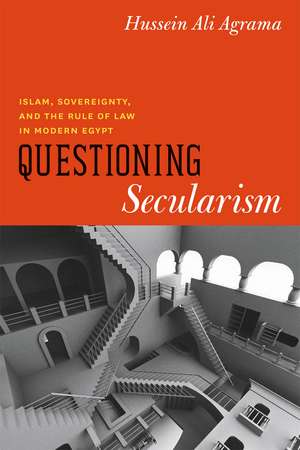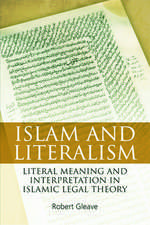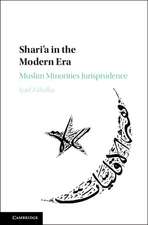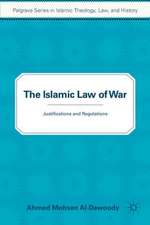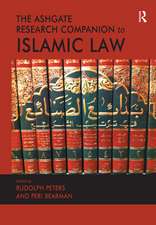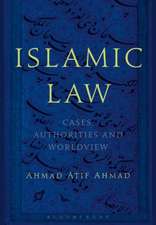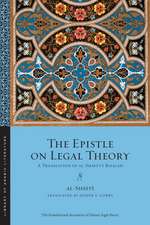Questioning Secularism: Islam, Sovereignty, and the Rule of Law in Modern Egypt: Chicago Studies in Practices of Meaning
Autor Hussein Ali Agramaen Limba Engleză Paperback – 26 noi 2012
The central question of the Arab Spring—what democracies should look like in the deeply religious countries of the Middle East—has developed into a vigorous debate over these nations’ secular identities. But what, exactly, is secularism? What has the West’s long familiarity with it inevitably obscured? In Questioning Secularism, Hussein Ali Agrama tackles these questions. Focusing on the fatwa councils and family law courts of Egypt just prior to the revolution, he delves deeply into the meaning of secularism itself and the ambiguities that lie at its heart.
Drawing on a precedent-setting case arising from the family law courts —the last courts in Egypt to use Shari‘a law—Agrama shows that secularism is a historical phenomenon that works through a series of paradoxes that it creates. Digging beneath the perceived differences between the West and Middle East, he highlights secularism’s dependence on the law and the problems that arise from it: the necessary involvement of state sovereign power in managing the private spiritual lives of citizens and the irreducible set of legal ambiguities such a relationship creates. Navigating a complex landscape between private and public domains, Questioning Secularism lays important groundwork for understanding the real meaning of secularism as it affects the real freedoms of a citizenry, an understanding of the utmost importance for so many countries that are now urgently facing new political possibilities.
Din seria Chicago Studies in Practices of Meaning
-
 Preț: 231.82 lei
Preț: 231.82 lei -
 Preț: 282.53 lei
Preț: 282.53 lei -
 Preț: 200.26 lei
Preț: 200.26 lei -
 Preț: 183.60 lei
Preț: 183.60 lei -
 Preț: 236.64 lei
Preț: 236.64 lei -
 Preț: 186.32 lei
Preț: 186.32 lei -
 Preț: 237.74 lei
Preț: 237.74 lei -
 Preț: 229.35 lei
Preț: 229.35 lei -
 Preț: 217.71 lei
Preț: 217.71 lei -
 Preț: 260.44 lei
Preț: 260.44 lei -
 Preț: 246.07 lei
Preț: 246.07 lei -
 Preț: 284.66 lei
Preț: 284.66 lei -
 Preț: 230.16 lei
Preț: 230.16 lei -
 Preț: 292.28 lei
Preț: 292.28 lei -
 Preț: 403.00 lei
Preț: 403.00 lei - 23%
 Preț: 669.93 lei
Preț: 669.93 lei -
 Preț: 242.40 lei
Preț: 242.40 lei -
 Preț: 392.77 lei
Preț: 392.77 lei - 15%
 Preț: 195.04 lei
Preț: 195.04 lei - 9%
 Preț: 287.12 lei
Preț: 287.12 lei - 17%
 Preț: 166.70 lei
Preț: 166.70 lei - 14%
 Preț: 199.02 lei
Preț: 199.02 lei - 18%
 Preț: 178.07 lei
Preț: 178.07 lei - 19%
 Preț: 148.73 lei
Preț: 148.73 lei - 22%
 Preț: 433.25 lei
Preț: 433.25 lei - 18%
 Preț: 152.10 lei
Preț: 152.10 lei
Preț: 268.20 lei
Nou
Puncte Express: 402
Preț estimativ în valută:
51.33€ • 53.39$ • 42.37£
51.33€ • 53.39$ • 42.37£
Carte tipărită la comandă
Livrare economică 12-26 aprilie
Preluare comenzi: 021 569.72.76
Specificații
ISBN-13: 9780226010694
ISBN-10: 0226010694
Pagini: 288
Ilustrații: black & white illustrations
Dimensiuni: 152 x 229 x 20 mm
Greutate: 0.41 kg
Editura: University of Chicago Press
Colecția University of Chicago Press
Seria Chicago Studies in Practices of Meaning
ISBN-10: 0226010694
Pagini: 288
Ilustrații: black & white illustrations
Dimensiuni: 152 x 229 x 20 mm
Greutate: 0.41 kg
Editura: University of Chicago Press
Colecția University of Chicago Press
Seria Chicago Studies in Practices of Meaning
Notă biografică
Hussein Ali Agrama is assistant professor of anthropology at the University of Chicago.
Cuprins
Preface
Introduction: A Secular or a Religious State?
CHAPTER 1. The Legalization of Hisba in the Case of Nasr Abu Zayd
CHAPTER 2. The Indeterminacies of Secular Power: Sovereignty, Public Order, and Family
CHAPTER 3. A Paradox of Islamic Authority in Modern Egypt
CHAPTER 4. Law’s Suspicion
CHAPTER 5. What Is a Fatwa?: Authority, Tradition, and the Care of Self
CHAPTER 6. Islamist Lawyers in the Egyptian Emergency State: A Different Language of Justice?
CHAPTER 2. The Indeterminacies of Secular Power: Sovereignty, Public Order, and Family
CHAPTER 3. A Paradox of Islamic Authority in Modern Egypt
CHAPTER 4. Law’s Suspicion
CHAPTER 5. What Is a Fatwa?: Authority, Tradition, and the Care of Self
CHAPTER 6. Islamist Lawyers in the Egyptian Emergency State: A Different Language of Justice?
Epilogue
Notes
Index
Index
Recenzii
“At a time when Egypt is consumed with debates about the role of Islam in the constitution and the role of the courts, Agrama’s book offers unique and fascinating insight into the actual operation of Islamic laws in Egyptian society. . . . Simply fascinating.”
“This highly innovative book is a real feast for the mind. A tour de force in the anthropology of Islam, it will be of great value to students of religion and secularism as well as to legal studies beyond Egypt and even beyond the Middle East.”
“Questioning Secularism is an important book. The discussions of the fatwa court alone would warrant praise, but there is much more: the exploration of how the secular state produces its own ambiguities is very engaging; the idea that different fora might employ related sources of legitimacy is handled with considerable deftness; the argument that the fatwa is a different sort of journey than the court proceeding is pursued with great care and insight. The overall result, then, is a work one can get one’s teeth into in the best sense of the word.”
“Questioning Secularism is a mind-widening book. It is not simply a contestation or reconstruction of the doctrines of secularism but an enquiry into the ways in which it continually generates questions—about necessary limitations to public expression, about the dangers of religious politics, about the place of the Shari‘a in a liberal state, and so forth. At the center of these questions, says Agrama, is the concern to determine the line between politics and religion. Agrama explores this theme brilliantly in the context of contemporary Egypt by drawing on a rich body of ethnographic and historical data, and presents the reader with valuable insights into the ways sovereignty, public order, and state of exception are implicated (often in contradictory ways) in the question of secularism in that country. The most innovative part of this impressive work is the comparison between the Egyptian family court and the Fatwa Council, both based on understandings of the Shari‘a but each very different in its conditions of existence and its orientation. This book is essential reading for anyone interested in secularism today.”
“This is one of the most exciting and original books I have read on the issue of secularism, law, Islam, and the Middle East. Agrama handles some of the toughest questions at the center of the current debate on secularism: What is the relationship between political secularism and sovereign power? What are the affects and sensibilities that underlie the secular state’s claim to religious neutrality? How are the ethical claims of secularism tied to its political and legal restructuring of religion? This is intellectual thinking at its best. No one interested in the much touted confrontation between religion and secularism, between Islam and liberalism, can afford to ignore this book.”
“Questioning Secularism is one of the most innovative, pathbreaking interventions into contemporary debates on the secular to date. Based on extensive ethnographic research in Egypt, the book provides a theoretically sophisticated and highly original analysis of the conceptual and practical ambivalences and contradictions at the core of Egypt’s legal and religious institutions. The implications of Hussein Ali Agrama’s argument for our understanding of the modern career of religion and secularity are vast, extending well beyond Egypt and the Middle East. Scholars concerned with these twin concepts cannot afford to ignore the challenge Agrama’s work poses to the field.”
